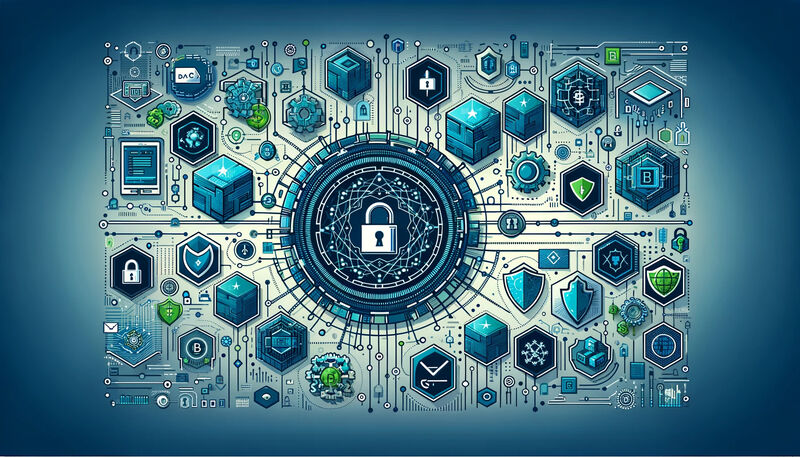Blockchain and Cybersecurity: A New Paradigm for Digital Trust

Blockchain technology is increasingly recognized for its potential to revolutionize cybersecurity, offering a new paradigm for establishing digital trust. This distributed ledger technology provides an immutable, transparent, and secure framework, which can significantly enhance the way we protect, store, and manage data in the digital realm. This article explores how blockchain is being integrated into cybersecurity strategies, its benefits, and the future implications of this convergence.
Blockchain Fundamentals in Cybersecurity
At its core, blockchain offers a decentralized and tamper-evident ledger, where data transactions are recorded, verified, and securely stored across a network of nodes. This inherent design offers several cybersecurity advantages, such as data integrity, transparency, and reduced risk of single points of failure.
Enhancing Digital Trust with Blockchain
- Data Integrity and Transparency: Blockchain's structure ensures that once data is recorded, it cannot be altered without consensus across all network participants, providing a high level of data integrity and trust.
- Decentralization: By distributing data across a network, blockchain minimizes the risks associated with centralized data storage, reducing vulnerabilities to cyber attacks.
- Smart Contracts: These self-executing contracts with pre-defined rules can automate and secure transactions, reducing the potential for human error or fraud.
Applications in Cybersecurity
- Identity Management: Blockchain can provide a more secure and user-controlled approach to digital identity, reducing the risk of identity theft and unauthorized access.
- Secure Messaging: Utilizing blockchain for communications can enhance privacy and security, ensuring messages are tamper-proof and verifiable.
- Supply Chain Security: Blockchain can track and secure the provenance of products, from manufacturing to delivery, reducing the risk of counterfeiting and tampering.
Challenges and Future Perspectives
While blockchain presents promising cybersecurity benefits, challenges such as scalability, energy consumption, and regulatory compliance must be addressed. The future of blockchain in cybersecurity looks towards more integrated, scalable, and user-friendly solutions, enhancing digital trust in an increasingly interconnected world.

